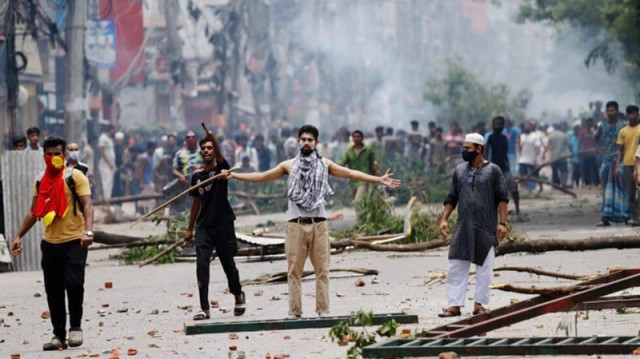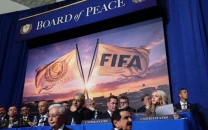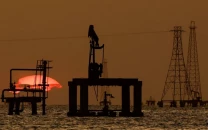Bangladesh bans Jamaat-e-Islami after protests result in over 200 deaths
Prime Minister Sheikh Hasina and her allies deemed the party a 'militant and terrorist' organisation

Bangladesh banned the Jamaat-e-Islami party, along with its student wing and affiliated bodies, on Thursday, calling the party a “militant and terrorist” organisation as part of a nationwide crackdown after weeks of violent protests left more than 200 dead and thousands injured.
Prime Minister Sheikh Hasina and her allies have accused Jamaat-e-Islami, along with its Islami Chhatra Shibir student wing and affiliated organisations, of provoking violence during recent protests over the government job quota system.
The Ministry of Home Affairs announced on Thursday that the ban was enacted under an anti-terrorism law. Since July 15, at least 211 people have been killed, and more than 10,000 have been arrested nationwide.
Jamaat-e-Islami has been prohibited from participating in the last three national elections since 2014 after its registration was canceled by the Election Commission.
The High Court had disqualified the party in 2013, stating that its constitution violated the national constitution by opposing secularism. However, the party was still allowed to engage in political activities, such as holding meetings, rallies, and making statements.
In 2023, the Supreme Court upheld the High Court's decision, ending a long legal battle by barring the party from elections and using party symbols. Still, the Supreme Court did not impose a complete ban on the party.
Founded in 1941 during British colonial rule by a controversial Islamist scholar, Jamaat-e-Islami opposed the creation of Bangladesh as an independent state during the 1971 war of independence from Pakistan.
Since 2013, most of the party’s senior leaders have been executed or imprisoned for crimes against humanity, including killings, abductions, and rapes committed during the 1971 conflict.
After Bangladesh gained independence in 1971, Jamaat was banned for its role in the mass atrocities under Sheikh Mujibur Rahman’s administration, who was Bangladesh’s founding leader and Hasina's father.
This ban was lifted in 1976, a year after Rahman was assassinated along with most of his family in a military coup. Sheikh Hasina and her younger sister Sheikh Rehana were the only survivors, as they were visiting Germany in 1975.
Jamaat had also faced earlier bans in 1959 and 1964 in Pakistan for its communal activities.



















COMMENTS
Comments are moderated and generally will be posted if they are on-topic and not abusive.
For more information, please see our Comments FAQ